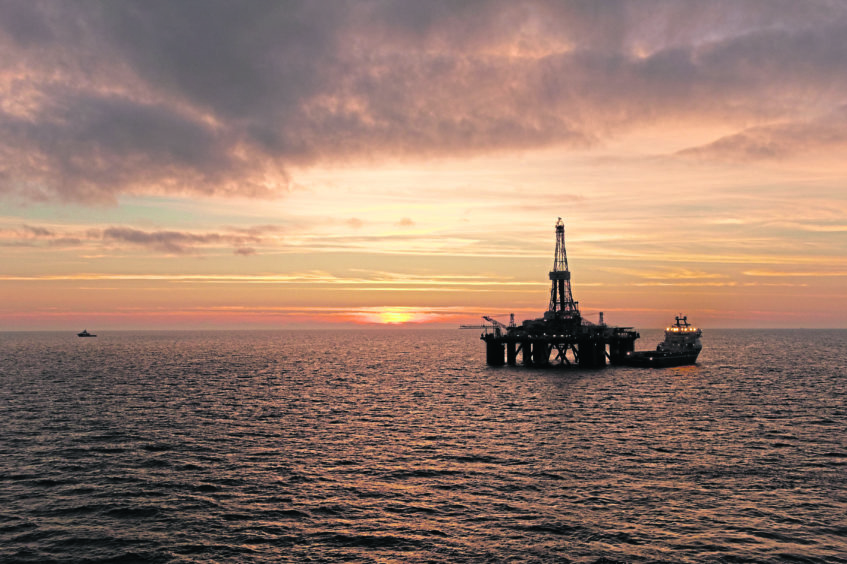
A landmark International Energy Agency (IEA) roadmap says no new oil and gas fields should be developed – beyond those already sanctioned — if the global energy sector is to achieve net-zero emissions by mid-century.
It means further fossil fuel exploration is no longer required, the IEA said.
The UK Government recently opted against ending exploration licensing rounds, but is introducing a checkpoint system, subjecting future auctions to far greater scrutiny.
OGUK sustainability director Mike Tholen said stopping investment in the oil and gas industry would be a “major drawback” for the energy transition.
Mr Tholen said that, in the case of the UK, it would increase reliance on imports and damage companies whose expertise is needed for the development of low-carbon technology.
In the IEA’s “net-zero emissions by 2050 scenario”, fossil fuels make up slightly more than one-fifth of total energy supply, down from almost four-fifths today.
Supplies would become increasingly concentrated with a small number of low-cost producers.
OPEC’s share of a much-reduced global oil supply grows from around 37% in recent years to 52% in 2050, a level higher than at any point in the history of oil markets.
Oil demand falls from around 90 million barrels per day in 2020 to 24 in 2050, while natural gas demand drops from 3,900 billion cubic metres to around 1,700.
Remaining fossil fuels are used in the production of non‐energy goods, like plastics, in plants fitted with carbon capture, and in sectors where low‐emissions technology options are scarce.
IEA said the scenario was “a clear threat to company earnings”, but insisted there were also “opportunities” for the oil and gas industry.
The organisation said the resources and skills of oil and gas companies were a “good match” for some new technologies needed to tackle emissions in sectors were reductions are challenging.
They are particularly well-suited to carbon capture, usage and storage, hydrogen, bioenergy and offshore wind.
IEA also stressed the opportunity to get to net-zero by 2050 was “not lost” for the energy sector, as a whole, but that the pathway was “narrow” and required an unprecedented transformation.
By 2035, there are no sales of new internal combustion engine passenger cars, and by 2040, the global electricity sector has already reached net-zero emissions.
Almost 90% of electricity generation comes from renewable sources, with wind and solar PV together accounting for almost 70%. Most of the remainder comes from nuclear power. Solar is the world’s single largest source of total energy supply.
However, this pathway requires immediate and massive near-term deployment of all available clean technology.
The roadmap calls for annual additions of solar PV to reach 630 gigawatts by 2030, the equivalent of installing “the world’s current largest solar park roughly every day”.
IEA executive director Fatih Birol said: “Our Roadmap shows the priority actions that are needed today to ensure the opportunity of net-zero emissions by 2050 – narrow but still achievable – is not lost.
“The scale and speed of the efforts demanded by this critical and formidable goal – our best chance of tackling climate change and limiting global warming to 1.5 °C – make this perhaps the greatest challenge humankind has ever faced.
“The IEA’s pathway to this brighter future brings a historic surge in clean energy investment that creates millions of new jobs and lifts global economic growth.
“Moving the world onto that pathway requires strong and credible policy actions from governments, underpinned by much greater international cooperation.”
The report was designed to inform negotiations that will take place at COP26 in Glasgow in November and was requested by the UK Government.
COP26 President- Designate Alok Sharma said: “I welcome this report, which sets out a clear roadmap to net-zero emissions and shares many of the priorities we have set as the incoming COP Presidency – that we must act now to scale up clean technologies in all sectors and phase out both coal power and polluting vehicles in the coming decade.”
Mr Tholen, of OGUK said: “Here in the UK, industry is leading the way to net-zero, providing the oil and gas we need from domestic resources while working with government through the North Sea Transition Deal to help the UK reach meet its climate goals.
“As the Climate Change Committee has pointed out, the UK will need oil and gas for many years to come. It is appropriate we use our own resources and invest locally, not only to meet our energy needs, but to support UK jobs and the economy too.
“Stopping such investment would be a major drawback for the energy transition underway – increasing our reliance on imports from countries whose carbon emissions we cannot control.
“It would also impact the innovation of the very companies whose expertise we need to develop low-carbon solutions, deterring the business this basin needs to make the sustainable future we all want to see.”
Charlie Kronick, senior climate adviser for Greenpeace UK, said: “This IEA report makes it clear that no more fossil fuels are needed because demand has to fall to meet the targets of the Paris Agreement.
“There’s no need – and no justification – for new oil and gas wells in the North Sea. Yet the UK government undermines any claims to climate leadership by planning to press ahead with more oil and gas extraction.
“To deliver on this government’s own climate rhetoric, and what the IEA now demands, BEIS Secretary Kwasi Kwarteng must rule out new oil and gas licences.”
Recommended for you

